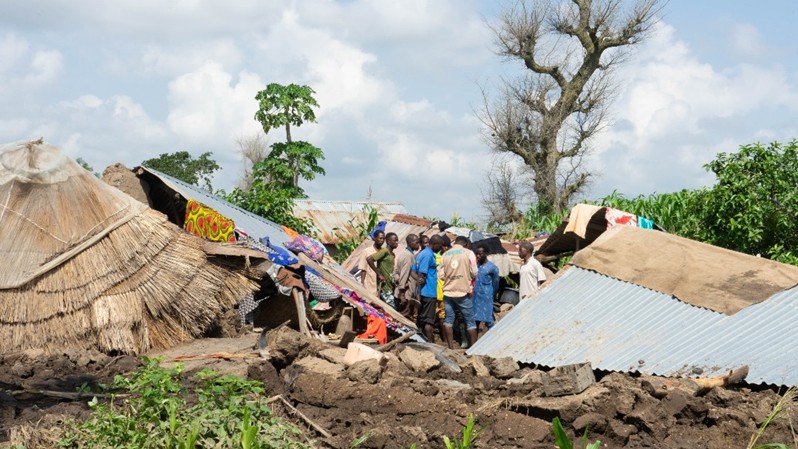When disaster struck Madagali and Michika LGAs in Adamawa State in September 2024, the devastation was overwhelming. Homes, farmlands, and vital infrastructure were washed away by floods, leaving thousands displaced and struggling to access food, clean water, and shelter. In this moment of uncertainty, Concern on Climate Change for the Community Initiative (FOURCi) mobilized quickly to conduct a rapid needs assessment. But behind the data and findings lies an untold story; one of resilience, sacrifice, and the unwavering commitment of community volunteers.
In the difficulty of this time, when physical access was restricted and communities were cut off, our volunteers became the first line responders. They worked with us through the simplest yet most powerful tools at their disposal (phone calls, WhatsApp messages, and SMS). These channels became lifelines, connecting our teams to real-time voices and experiences from the ground. Volunteers gathered critical information from families, leaders, and internally displaced persons, often while managing the same hardships themselves. Their responsiveness, despite the tight complexities, was nothing short of heroic.
The information they provided enabled us to paint a clear picture of the crisis: over 32,000 hectares of farmland destroyed, more than 5,000 people sheltering in temporary locations, and widespread contamination of water sources that heightened the risk of cholera outbreaks. Their input also revealed urgent priorities (access to healthcare, household non-food items, and agricultural support). Without their commitment, this assessment would not have been possible, and the delivery of relief would have been delayed.
These community volunteers were not just data collectors; they were protectors of their neighbors’ dignity, advocates for their communities, and bridges between vulnerability and response. They ensured that every voice was captured and amplified; whether from a widow in Madagali, a farmer in Michika, or a child displaced from their home.
At FOURCi, we recognize that community-led action is not only effective but essential. The courage of these volunteers reminds us that humanitarian response is strongest when built on local ownership. As we move from immediate relief to long-term recovery which will include rehabilitating water systems, promoting climate-smart agriculture, and supporting resilient housing, we carry with us the lesson that sustainable solutions must always start with those closest to the challenge.
This article is dedicated to the community volunteers who stood with us in crisis. In their persistence, we find hope. In their voices, we hear the path forward.


